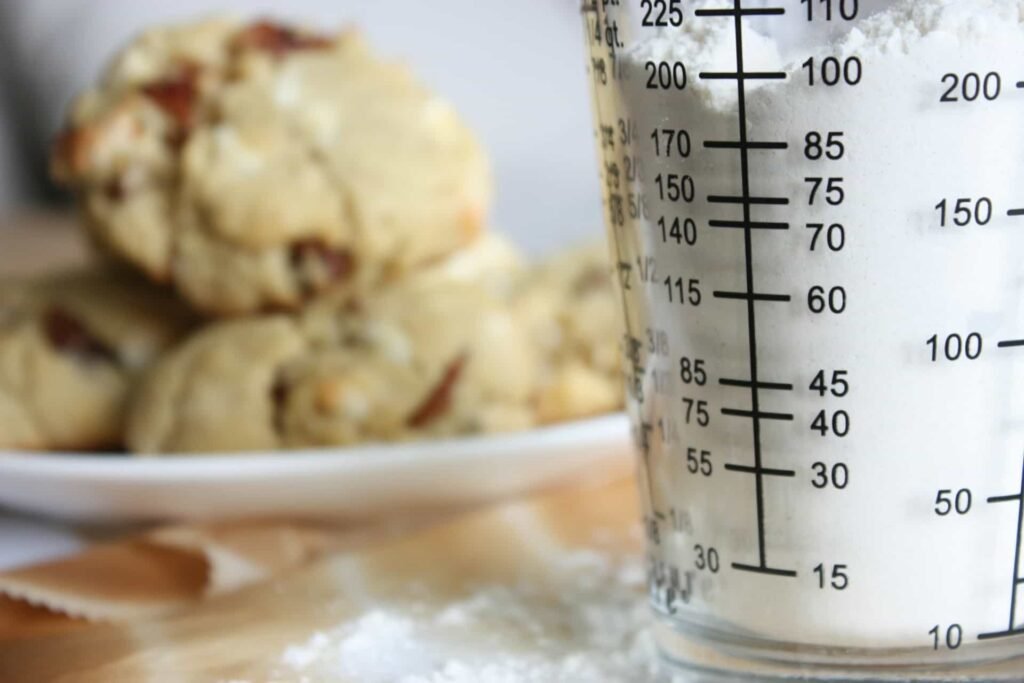One of the most common questions that almost every beginner struggles with is how many calories they should consume to reach a certain goal. Maintaining a good diet is equally or, in some cases, more important than exercising. You cannot simply out-exercise a bad diet.
What foods should you eat? How can you track calories? What is your maintenance calorie? Many more questions like this usually circulate around a beginner who has no experience with calorie tracking and dieting.
I have lost almost 30 KG (66 Pounds) of weight in 8 months. I have gone through the process which practically every beginner goes through. From my experience, I will break down every step so that you do not need to suffer to get the answer to the question of “How many calories do you need to eat?”
Contents
What is calorie?
A calorie is a unit of energy. The energy we get from food is measured in calories. If you check any food nutrition label, you will find out how many calories the food has. It is expressed as kcal. Usually, the information on calories is given based on 100 grams. Just check the packaging and check the net weight of that food.
For example, if you check the label of an electrolyte drink, you might see the calories disclosed on the backside of the bottle. Suppose it is 60 calories per 100 milliliters. Then check the front. Usually, on the bottom side, you will find the portion size, like 250 ml. That drink contains 150 kcal (60 x 2.5).

Why do you need to count calories?
The primary purpose of counting calories is to gain or lose weight. It is mainly used for losing weight because when gaining, people usually just start eating more without keeping track unless they are professional athletes or bodybuilders.
For regular people, counting calories is important as it provides the data they require to reach their desired weight.
Knowing your maintenance weight is very important as it will dictate how many calories you need to consume to start losing fat.
To know how many calories you need to consume, you must go through a process step by step. The processes are:
Guess Your Maintenance Calories
If you do not know what maintenance calories mean, let me tell you briefly.
Maintenance calories are the number of calories that will neither make you gain weight nor lose weight. Suppose your maintenance calorie is 3000 Kcal. If you continue to eat an average of 3000 kcal weekly, you will neither gain nor lose weight.
How can you know your maintenance calories?
When you try to find your maintenance calories on the internet, most people suggest you use online calculators, which will take some of your metrics and provide you with your maintenance calories. Are those calculators’ results reliable?
Absolutely not. They just provide a generic number that is far from reality. Don’t believe me? Then, use two random calculators and see for yourselves. Even if you provide the same information, you will most likely get different answers.
Have you tried it?
Then, how can you find out what your maintenance calorie count is?
I also struggled a lot to find the answer to this question. I read many articles, but they were all very complicated to understand.
The simplest and most effective (That worked for me) way that I found to guess to guess the maintenance calorie was found out by Dr. Mike Israetel. He said to weigh yourself in pounds and multiply that by 15 to get a rough guess of your maintenance calorie.
Suppose you weigh 160 pounds. Then, for baseline, guess that your maintenance calories should be 2400 Kcal (160 x 15)
How will you know if it is correct or not?
Weigh yourself in the morning before eating or drinking anything for four days. If your weight is the same as before, then it is your maintenance calorie. If you see your weight go up, then lower your calories by 250 to 500 and again measure for four days. By doing this trial and error, you will find a calorie range in which your weight remains the same even after a week. That is most likely your maintenance calorie.
I weighed 80 Kg, and by following the same process as described, I found that my maintenance calorie intake is around 2500 kcal.
Use the data you have to reach your goal
Now that you have an educated guess about your maintenance calories use that to reach your goal.
If you want to bulk up, eat at a surplus of about 300 calories. Ensure you eat whole foods and include a good amount of protein in your diet.
Eat at least 1.2 g of protein per pound of body weight; the remaining calories can be filled with carbs and fat.
When cutting, do the same; just lower the calories by 300. Eating a good amount of protein—1.2 to 1.5 grams—and doing some resistance training will help you retain muscle.
How can you count your daily calories?
Calorie counting is not something you can learn in a day or a week. It takes time to measure calories accurately.
For calorie counting, I will tell you to divide your food groups into two parts:
Labeled Foods
By labelled foods, I mean foods that usually come packaged, such as milk, cereals, ketchup, canned foods, etc.
There is a nutrition label on packaged foods, on which you can see the calories in a serving. However, even though you follow the label, there might be a plus minus 20% error, as every food label is not accurate.
Do not worry. You do not need to be pitch-perfect while measuring calories. You can get an educated guess on how many calories you consume from this food. In recent times, it has become easier as different apps can track your calorie intake.
You just need to scan the bar code in the package, and the app will do all the counting for you.
Unlabeled Foods
Unlabeled foods are those that do not come in packages, like fruits.
For this kind of food, you can just google and check how many calories they possess in 100 grams and measure accordingly.
Avoid these common mistakes while counting calories
There are 3 common mistakes that beginners make while counting calories:
- Do not count the calories of add-ons like mayonnaise, oil, ketchup, maple syrup, etc. Usually, the add-ons contain a good amount of calories. So, use low-calorie alternatives or portion control to avoid overconsuming calories.
- Not tracking liquid calories correctly. In a bottle of pop, the calorie is given based on 100 ml, but the bottle or pop that you are consuming is not 100 ml. It is more than that. So multiply that and measure accurately.
- Eyeballing portions rather than measuring the food is not a good option, especially for beginners. Buy a food weighing scale. Those are cheap and pretty helpful when you are counting calories.
Will your maintenance calories be the same all the time?
The answer is no; it can change based on many factors. Among those, the major variables that dictate the outcome are:
- Muscle Gain: When you gain a good amount of muscle, your maintenance calories will increase. The reason for that is that muscles are highly metabolic. In simple terms, this means that to maintain muscle, your body needs to work more and burn more calories passively.
Two people, one fat and the other muscular, Even if they have the same height and weight, the person that carries more muscle will have a higher maintenance calorie than the fat person.
- Activity Level: If you are more active throughout the day, you will automatically burn more calories, and thus, your maintenance calories will be higher.
A person doing physical labor will likely have higher maintenance calories than a desk job.
- Weather: In winter, people usually do not move much and stay home, especially when it snows. At those times, the metabolic rate goes down. In summer, people move more, visit the beach, or go out more often. At those times, metabolism tends to increase
Takeaway
Guessing your maintenance calories is the first and one of the most important tasks when tracking calories.
It takes time to learn how to track calories accurately, so do not rush or get demotivated. Get professional help if you want. By doing trial and error, you will be able to track your calories pretty easily and progress on your goals.



